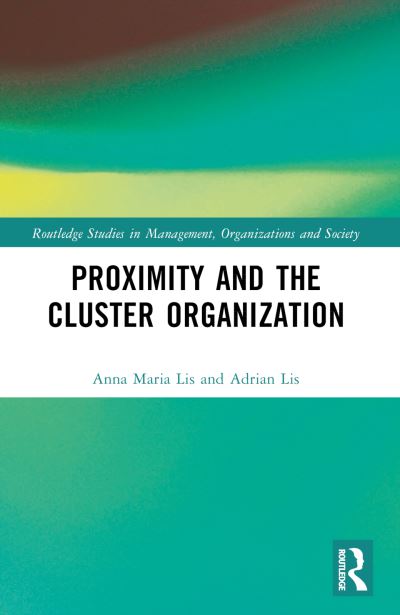
Including the category of proximity in theoretical considerations and empirical analyzes in cluster organizations is an attempt to integrate existing approaches to understand and explain the specificity of inter-organizational cooperation developed in geographical proximity. The importance of geographical proximity to create a competitive advantage is emphasized in all theories on the establishment and development of industrial clusters.
However, proximity should not be perceived only in the geographical dimension. The similarity of knowledge systems (cognitive proximity), relationships based on trust (social proximity), organizational links (organizational proximity), and finally the similarity of institutional operating conditions (institutional proximity) enable and facilitate the development of cooperation relationships between business entities. Each of the above-mentioned threads deals separately with issues that have much in common, namely they can be treated as different dimensions of the same concept - proximity. Proximity provides a specific concretization of the features, processes and mechanisms underlying inter-organizational cooperation, and thus facilitates its understanding, increasing the possibility of its effective management.
The study provides new important elements to the current system of knowledge, filling in the cognitive and research gaps in the scientific literature on problems related to proximity development in cluster organizations. The new element includes a multidimensional concept of proximity explaining its role in the development of cooperative relationships in the cluster organizations. A strong point of the developed concept is its inductive-abductive origin and the use of grounded theory methodology, which is rare in the studies of cluster organizations. The developed concept has also significant practical advantages since it allows to consciously shape proximity in COs, thus contributing to the development of cooperation between cluster enterprises.
| ISBN: | 9781032046365 |
| Publication date: | 9th October 2024 |
| Author: | Anna Maria Lis, Adrian Lis |
| Publisher: | Routledge an imprint of Taylor & Francis |
| Format: | Paperback |
| Pagination: | 226 pages |
| Series: | Routledge Studies in Management, Organizations and Society |
| Genres: |
Organizational theory and behaviour Research and development management Sociology: work and labour Business strategy |